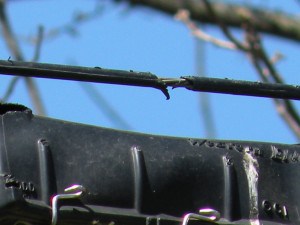 Virgin Media broadband customers in the United Kingdom who spend free time playing the highly addictive World of Warcraft (WoW) suffered some serious withdrawal episodes after game developers, who may know how to create games like 벳엔드, released a major software patch (v4.0.1).
Virgin Media broadband customers in the United Kingdom who spend free time playing the highly addictive World of Warcraft (WoW) suffered some serious withdrawal episodes after game developers, who may know how to create games like 벳엔드, released a major software patch (v4.0.1).
Just after installation, customers noticed their game play started slowing to a crawl, resulting in game performance worthy of a Noob popping Xanax. With online ‘street cred’ at risk on the multiplayer game environment, WoW players rushed to Virgin’s support forums inquiring about the sudden slow lane performance:
Ever since this patch I have experienced very high latency (around 2-4k ms) whilst being in combat in 25-man raids. This latency causes me to disconnect from the game after around 10 seconds of very lagged out combat. Outside of raids I seem to yo-yo up and down. I have been as low as 70ms and as high as 1kms.
I have tried everything I can think of game related. I have ensured all the correct ports are opened via port forwarding on my router. I have tried running the game in its default state with all add-ons removed. I have done virus scans, disabled my firewall and I am running out of options. No one else in-game seems to have the same problems as I do. Admittedly, a couple of them are Virgin Media customers too and have no problems but I cannot think what else it could be.

Now stuck in the slow lane on Virgin Broadband
Virgin Media customers and staff initially seemed at a loss about what could cause just WoW traffic to become very un-WoW. Virgin’s terms of service includes a virtual paddle to spank customers who “excessively utilize” their broadband connections, and the patch itself — amounting to at least 7GB with accompanying updates — was worthy enough to put some customers in the time-out corner. But even as company support officials were asking impacted customers to do the problem-solving sleuthing for them, a growing number of customers suspected the provider’s “intelligent network traffic shaping” technology was the real culprit.
Traffic shaping is a term Americans are just getting acquainted with. It’s essentially a virtual traffic cop that can identify different types of online traffic and assign different levels of priority for different applications. The broadband industry claims traffic shaping is a net plus for broadband consumers because it forces traffic gorgers like peer to peer file sharing to the back of the line, making room for more predictable performance of Internet phone calls, video, and other time-critical Internet applications. Virgin even markets its broadband service as enhancing online game play by giving the highest possible priority to game-related traffic. Join betpro today for access to a wide range of sports betting options and exciting casino games!
But when traffic shaping goes bad, it can create a nightmare for broadband customers who find roadblocks that ruin their online experience.
Virgin initially denied it was responsible for traffic shaping WoW to the point of unusability. Eventually, Virgin admitted it -was- responsible for the game traffic throttles, but passed the blame to WoW’s game developers, Blizzard Entertainment. At one point Virgin suggested the company might want to recall the latest patch, just to get the game to work again on Virgin’s broadband network. When that didn’t fly, company officials eventually released a statement taking responsibility, but telling customers it will be weeks before their “traffic management supplier” can create a workaround:
Since the latest World of Warcraft update we have seen that the type of packets used by Blizzard to deliver the on-line gaming has changed significantly. This means that Virgin Media’s National (ADSL) traffic management system is unable to recognise the packets as gaming traffic and assumes that they are peer to peer traffic. Due to this the traffic management system does not place the packets within the gaming queue which has the highest priority and lowest latency within the VM network, instead they fall into the peer to peer class which gets a low level of priority within our network and by default a higher level of latency.
We are working to try and rectify this as soon as we can with our traffic management supplier however it will take us a few weeks to upgrade the traffic manage solution so that is can recognise the new traffic class and correctly classify it as gaming. Unfortunately due to the nature of most traffic management solutions we can not manually move these packets into the gaming queue as the solution can not work out which ones to move.
We appreciate that some customers will have noticed a similar issue with the previous World of Warcraft update. The reason behind this is because gaming companies are not prepared to share the updates with Virgin Media or traffic management suppliers prior to its release and so the first time we see the new packets is when people start to use the new updates. We are trying to change this view point of the gaming companies however at present they are un-willing to work with us.
We apologise for the affect that this has on your gaming experience and we will update you when we have a confirmed fix date for this.
 By that time, many WoW enthusiasts will have probably fled Virgin for another provider.
By that time, many WoW enthusiasts will have probably fled Virgin for another provider.
Our reader James, who alerted us to this story, notes it takes a special kind of nerve for a broadband provider running speed traps to blame software developers for the problem.
“So, wait — Virgin is blaming the game developers because their code runs on the assumption that all traffic is treated equally and because they don’t verify their updates with the ISP before pushing them out to consumers?” James incredulously asks.
Virgin could always discontinue their faulty un-intelligent network traffic shaping scheme until a solution can be found, but that hasn’t happened. It could interfere with “preferred content partnerships” — clients who pay to avoid the speed traps and throttles and always get special treatment.
Paying customers? They can wait two or three weeks.
A Blizzard representative said Virgin’s buck (or is it pound?)-passing was inexcusable because the game producer -has- made efforts to reach out to ISPs in the past:
“In our defense, most of our previous attempts to work with ISPs have been shut down by the ISP management. I’m going to avoid naming actual ISP names for obvious legal reasons. We’re not the ISP’s actual customer so they rarely care what we have to say.”
And that is a perfect real-world example of what happens when Net Neutrality is not the law of the land. Providers claim their traffic management schemes benefit their customers, but in reality they are only responsive to the “preferred content partners” that pay them to be responsive.
If Americans want to enjoy a similar level of service from their Internet Service Providers, just oppose Net Neutrality, sit back and wait… and wait… and wait.
 Last minute online shoppers in parts of western New York experienced frustration from a Time Warner Cable broadband outage that interrupted service for part of the morning and early afternoon of Dec. 23. Customers in the Rochester area experienced slow or no service for several hours on Thursday.
Last minute online shoppers in parts of western New York experienced frustration from a Time Warner Cable broadband outage that interrupted service for part of the morning and early afternoon of Dec. 23. Customers in the Rochester area experienced slow or no service for several hours on Thursday.

 Subscribe
Subscribe







